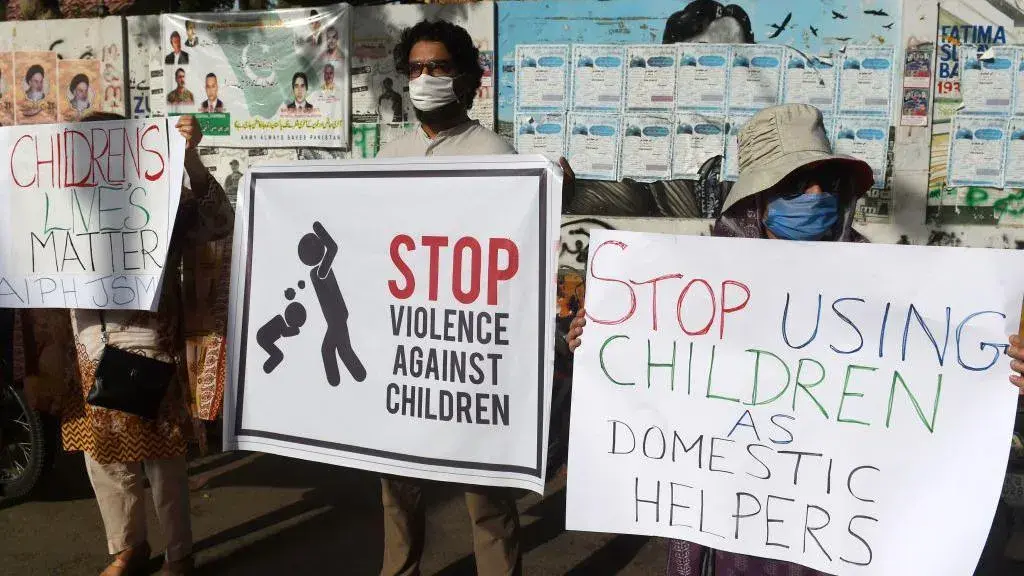A couple in north-east Pakistan has been arrested for allegedly killing a 13-year-old girl, Iqra, who worked as their maid, after accusing her of stealing chocolates.
Iqra, who only went by one name, succumbed to multiple injuries at a hospital last Wednesday. A preliminary police investigation indicated she had been subjected to torture.
The incident in Rawalpindi has triggered widespread outrage, with the hashtag #JusticeforIqra gaining traction online, reigniting discussions about child labor and the mistreatment of domestic workers.
Child labor laws vary across Pakistan, but in Punjab province, employing children under 15 as domestic workers is illegal.
"I was devastated when she passed away," her father, Sana Ullah, told the BBC.
He recounted how police had called him last Wednesday. When he arrived at the hospital, he found Iqra unconscious on a hospital bed. She died moments later.
Iqra had been working as a maid since she was eight years old. Her father, a 45-year-old farmer, said financial struggles and debt had forced him to send her to work.
After working for several employers, she started working for the accused couple two years ago. They have eight children of their own, and she was earning around £23 ($28) per month.
According to police, Iqra had been accused of stealing chocolates, and an initial investigation suggested she had suffered torture. Authorities also found evidence of ongoing abuse, with images and videos showing multiple fractures in her arms and legs, as well as a severe head injury.
An autopsy is underway to determine the full extent of her injuries, and police told the BBC they were awaiting the final medical report.
"My heart bleeds. How many others endure violence in their homes over such small matters?" activist Shehr Bano wrote on X. "How long will the poor continue burying their daughters like this?"
Many have also highlighted the seemingly trivial reason behind the alleged killing.
"She lost her life over chocolate?" one user on X questioned.
"This isn't just a crime—it exposes a system where the wealthy treat the poor as disposable," another wrote.
Iqra’s employers, Rashid Shafiq and his wife Sana, have been taken into custody, along with a Quran teacher who worked for the family. The teacher had taken Iqra to the hospital but left after informing staff that her father had died and her mother was absent.
Police told the BBC it remains unclear whether the teacher genuinely believed this information.
Iqra’s father is seeking justice. "I want those responsible for my daughter's death to be punished," he said.
Despite public outcry over such cases, they are often resolved outside of court, and convictions remain rare.

_4.jpg)
_6.jpg)
_1.jpg)




.svg)



